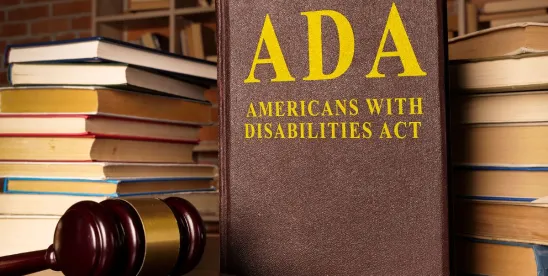The Supreme Court of the United States recently granted certiorari in Stanley v. City of Sanford, Florida—a consequential case about whether the Americans with Disabilities Act (ADA) covers former employees. The case has practical significance for employers. If the Court finds that the ADA does apply to former employees, then employers will have to closely scrutinize how their post-employment actions affect former employees who have disabilities. And if those actions are discriminatory, employers could find themselves facing lawsuits from former employees long after the employee stopped working for the employer.
Background
The plaintiff, Karyn Stanley, worked as a firefighter for the City of Sanford for about fifteen years until she was diagnosed with Parkinson’s disease. She worked for two more years, but the disease ultimately forced her to take disability retirement. Under the policy in effect when she first joined the Fire Department, employees retiring for qualifying disability reasons received free health insurance until they were 65. Stanley did not know, however, that the benefit changed during her employment. And under the new benefit, employees who retired with a qualifying disability were only eligible for a health insurance subsidy for two years after retiring. Stanley thus filed a lawsuit against the City of Sanford, alleging that the City violated the ADA and discriminated against her as a disabled retiree when it decided to trim the health insurance subsidy.
The district court granted a motion to dismiss, finding that Stanley was not a qualified individual with a disability. On appeal, the Eleventh Circuit affirmed. The Court explained that Stanley was not a qualified individual with a disability because the ADA’s text requires such an individual to “hold” or “desire” to hold a job with the employer. So, according to the Court, “to be a victim of unlawful disability discrimination, the plaintiff must desire or already have a job with the defendant at the time the defendant commits the discriminatory act.”
In reaching this conclusion, however, the Eleventh Circuit recognized there is a circuit split on whether the ADA applies to former employees. On the one hand, the Sixth, Seventh, Ninth, and Eleventh Circuits say the ADA does not cover former employees, while the Second and Third Circuits say that it does. The primary reason for the circuit split is that the Second and Third Circuits believe the ADA’s text is ambiguous and have chosen to construe that ambiguity in favor of the employees.
SCOTUS Grants An Appeal
In June 2024, the Supreme Court granted Stanley’s appeal of the Eleventh Circuit’s ruling and is now poised to resolve the circuit split over whether a former employee loses her right to sue over post-employment benefits that she accrued during her employment. A ruling in favor of Stanley may affect how employers administer post-employment policies and benefits. Changes to post-employment benefits plans that disproportionately affect disabled former employees may be susceptible to challenge. Employers will want to keep an eye on this case when it proceeds to oral argument in the Fall and eventually to a decision in 2025.





 />i
/>i
